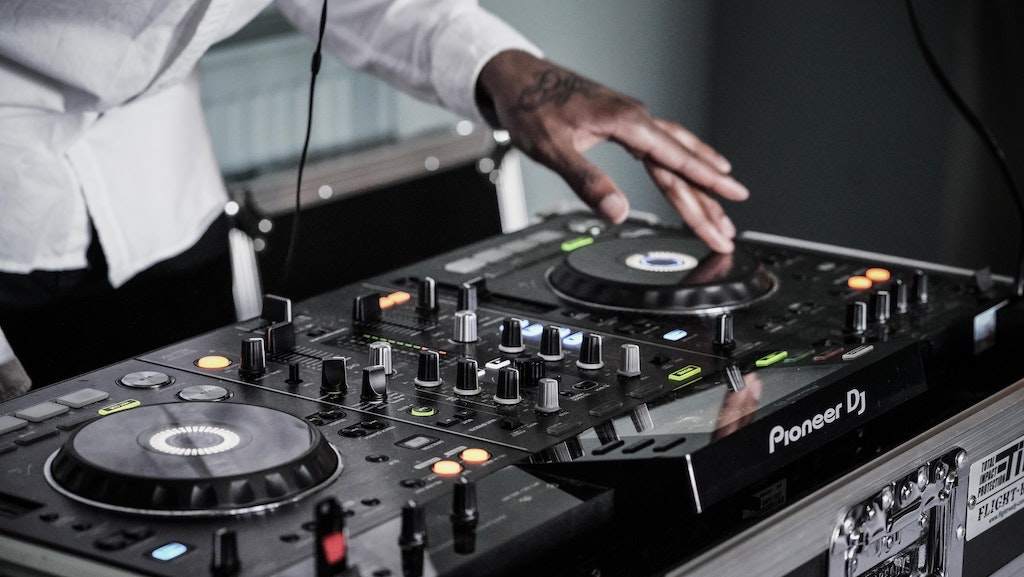Published
Wed, Apr 27, 2022, 10:00
- The likes of gigmit offer DJs a fast track to the top. We investigate their potential.

Online booking platforms such as gigmit offer to perfectly match DJs with gigs. Could they disrupt the music industry?
Starting out as a DJ is hard. Life is spent playing friends' house parties, sharing online mixes and gigging in small rooms for single-digit crowds. The dream is to swap this penniless anonymity for paid gigs, club residencies and 1000-plus followers on SoundCloud. But how? Ask people in the industry and they'll all say the same thing: the route to success is a hard slog building contacts and proving your worth.
But that might be about to change—at least according to a new generation of online booking platforms that are disrupting the industry. Emerging services like gigmit, Gigmor and Gigstarter are giving fledgling DJs a direct line to clubs and promoters, so even little-known artists have a chance to snap up top gigs. The promise: a fast track to musical fame.
Of the platforms, gigmit is making the biggest waves. Founded in 2012, the site is a sort of Tinder for the music industry, bringing together perfectly matched venues and artists. The Berlin-based service boasts 200,000 users and over 10,000 registered venues and festivals. DJs looking for gigs create a profile on the site, which then suggests relevant opportunities posted by clubs and festivals. Rather than having to navigate a daunting tangle of promoters, agents and managers, artists can bid for work at the source.
"We are simplifying what has become very complex," gigmit founder Marcus Fitzgerald told Resident Advisor.
While gigmit does have some established artists on board– German DJs Sascha Dive and Felix Kröcher are listed on the site—the benefits are clearer for those fresh on the scene. gigmit says its service opens doors for artists who don't have the insider connections and bulging address books traditionally needed to secure bookings.
"We stand for diversity and accessible stages," said Fitzgerald. "Talent should matter more than who you know."
gigmit offers users a free basic version, but artists looking to access the most lucrative gigs must pay €228 a year for a premium subscription. gigmit says this model means it doesn't need to take a cut of artists' fees.
The platforms allege benefits for the industry side, too. On gigmit, club and festival promoters get access to a database of thousands of artists filtered by genre and location. Acts are sorted according to their Spotify listeners and social media followers—the metrics of choice for commercially driven bookers looking to maximise ticket sales. The tool has particular appeal for festival promoters, who often struggle to book the hundreds of artists needed for a multi-day event. The pandemic saw 70 percent of DJs retrain in other fields, making bookable acts scarcer than they once were.
That's the promise, but can these platforms really help clubs fill their floors while giving young DJs a beeline to Berghain? A hopeful artist browsing the listings on gigmit will find everything from a slot at Sziget Festival in Hungary (fee: €2000) to a gig playing a 50th birthday party on a German riverboat. Any registered user can post a gig on the site, meaning the quality inevitably varies.
gigmit concedes that the offers aren't for everyone. "What is for one artist a great opportunity [isn't] necessarily a great opportunity for another," Fitzgerald said. The focus is quantity, allowing artists to bid for all kinds of work rather than just a curated selection of gigs.
Although gigmit says it has begun vetting gig listings for quality, the crowdsourced approach has its pitfalls. One DJ ranked highly by gigmit's algorithm, Michael Enyo Carey, appears to have 1.8 million fans on Facebook but a closer look shows only eight followers on Spotify. A Google search for his profile turns up a dead link. While there's no indication of widespread fakery, it's a reminder that a platform is only as good as its users.
Artists using gigmit also gain access to a database of leading clubs and venues, allowing them to message bookers directly in the hope of getting a foot in the door. And while the contact list includes some big names—Berghain and fabric are listed—there's no guarantee they will respond to artist requests. (We contacted Berghain and fabric to ask if they'd had any dealings with gigmit users, but didn't receive a reply in time for publication.)
As for the music industry response, the platforms have been met with a mix of enthusiasm and indifference. gigmit counts Sony Music among its investors and says it has won financial support from label owners, artists and promoters. The booking agencies contacted for this article reported having some success using the platforms, but had reservations about the quality of the gigs on offer.
One industry figure who founded an agency in the Netherlands said that while online booking sites can be useful for getting artists into showcase gigs (where acts are pitched to bookers, promoters and other industry figures), the opportunities for original musicians can be limited.
"They mostly work for tribute or cover artists for private events like weddings," he told RA. Indeed, one of gigmit's main competitors is Amsterdam company Gigstarter, a platform specialised in cover band bookings.
Despite the inroads made by these platforms, the industry isn't quite ready to turn its back on the time-honoured methods of booking and promoting talent. While an artist's online presence definitely counts for something when it comes to winning gigs, many clubs and promoters will do their own research into new talent as well as booking the DJs they already know and trust.
"Human connections should be the foundation," said the Netherlands-based agent.
As for fresh-faced artists looking for their golden ticket, the original gig economy remains as tough as ever: at the time of writing, 954 artists had applied for the single slot at Sziget Festival. The struggle, it seems, continues.
Photo: Yomex Owo